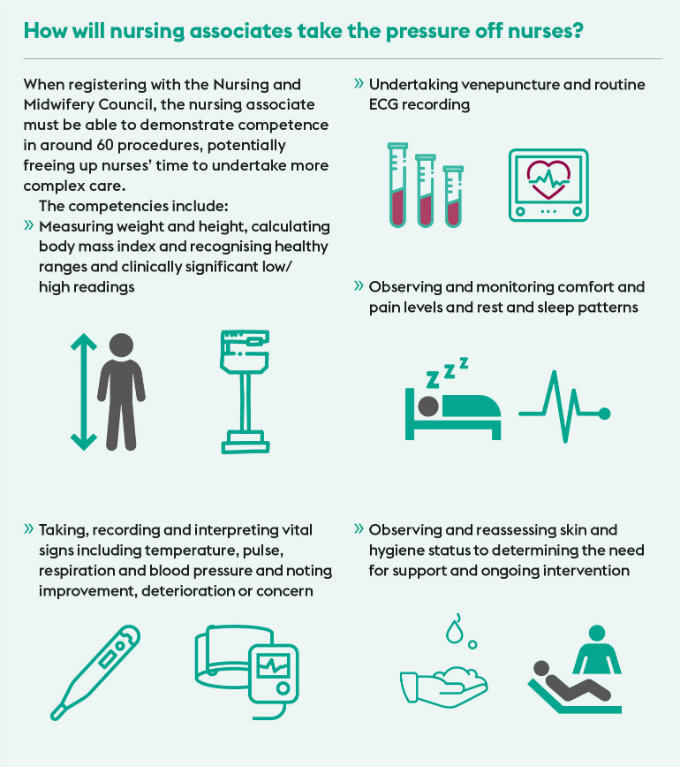Nursing associates registered with the Nursing and Midwifery Council in England for the first time earlier this year. What’s their role and how will they work with students?
What’s a nursing associate (NA)?
It’s a new nursing support role in England, with a focus on providing care. They bridge the gap between registered nurses (RNs) and nursing support workers.
NAs are directly accountable to the NMC in the same way as nurses and midwives, but they will usually be working under the direction of nurses or other professionals in most contexts.
NAs work across all fields and settings in England including acute, mental health, community, social care, GP practices and hospices.
Is this a UK-wide role?
Nursing associates are currently only registered to work in England.
Scotland, Wales and Northern Ireland have their own various training options available.
Visit the RCN pages on these to find out more.
How are they different to other support workers?
This group of staff is regulated by the Nursing and Midwifery Council (NMC).
They work to the standards in the NMC Code and their standards and training programmes are set by the NMC. These set out what NAs should know and be able to do when they join the NMC register.
Nursing associates bridge the gap between registered nurses and health care assistants
What training do NAs have?
NAs study for a foundation degree, most often in an apprenticeship programme. Their training is delivered through a mix of time at university, placement days and practice days over two years.
Are NAs likely to be supervising students?
The NMC recently produced new standards for supervision and assessment of students. These state that NAs may act as practice supervisors for student nurses within the scope of their practice. They may also act as practice assessors for trainee nursing associates.
Can NAs train to become registered nurses?
Yes, they can, but it’s also a standalone role. They can use their accreditation of prior learning (APL) to get credit for their course, so they can complete a nurse apprenticeship degree course or a nursing degree over a shorter time.
Where can I find out more about the nursing associate role?
The NMC website has all the up-to-date information on the role.
A new route into nursing
Stacey McCabe, nursing associate and student nurse, talks about her experience of the role so far

I’ve worked in the health care environment for many years, but when I trained to become an NA, I learned so much more about different aspects of nursing, including patient-centred care, medicine management, anatomy and physiology.
I’ve recently supported a first-year student on their first placement to complete several clinical skills. She could come to me to talk through any concerns or if she was unsure how to perform any tasks.
I’ve taken the opportunity to top-up my foundation degree and am now in my second year of student nurse training. I was able to skip the first year and part of the second year of my nursing degree and hope to complete the course in 18 months.
 First printed in Nursing Standard March 2019.
First printed in Nursing Standard March 2019.
Find out more
Visit the NMC website or the RCN pages to learn more about the nursing associate role.








